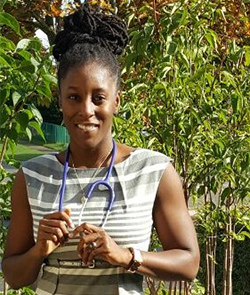
Children and Depression
Helping Children with Mental Illness
As many parents know, behavioral issues are significant problem and many children have a difficult time with concentration and maintaining a focus on schoolwork. As a naturopath, I look for safe and beneficial solutions for the behavioral issues that manifest in children of all ages.
Antidepressants and Children
Well-meaning physicians utilize tools at their disposal, and in some cases, prescribe adult antidepressant medications for pediatric patients. Children routinely take psychiatric medications to address anxiety and depression symptoms. Unfortunately, antidepressant use with children and young adults can result in drastic and unexplained change in demeanor. Moreover, use of these drugs doubles the risk of suicide within this age group.
Many patients with depression take selective serotonin reuptake inhibitors (SSRI medications) to address depression symptoms. SSRIs are thought to alleviate a patient’s depression by increasing serotonin, the mood regulating hormone, in the brain. Relying solely on SSRI medication, however, to promote serotonin production can be problematic because SSRI drugs increase serotonin via a synthetic chemical reaction, while simultaneously ignoring underlying dietary insufficiencies. A deficiency in key B vitamins such as B-6 (found in fish, seeds, bananas and nuts) can decrease the brain’s natural ability to produce serotonin. Correcting these dietary imbalances can naturally and dramatically improve one’s mood and reduce depression.
Be Aware of What Your Child is Taking
In 2007, the FDA released a black box warning for antidepressant use in children and young adults under the age of 25, during the first two months treatment. This is the strongest type of warning from the FDA and same was issued due to the extreme suicide risk for children on antidepressants. The medications with a black box warning include:
|
Anafranil (clomipramine) Asendin (amoxapine) Aventyl (nortriptyline) Celexa (citalopram hydrobromide) Cymbalta (duloxetine) Desyrel (trazodone HCl) Elavil (amitriptyline) Effexor (venlafaxine HCl) Emsam (selegiline) Etrafon (perphenazine/amitriptyline) fluvoxamine maleate Lexapro (escitalopram oxalate) Limbitrol (chlordiazepoxide/amitriptyline) Ludiomil (maprotiline) Marplan (isocarboxazid) Nardil (phenelzine sulfate) nefazodone HCl Norpramin (desipramine HCl) |
Pamelor (nortriptyline) Parnate (tranylcypromine sulfate) Paxil (paroxetine HCl) Pexeva (paroxetine mesylate) Prozac (fluoxetine HCl) Remeron (mirtazapine) Sarafem (fluoxetine HCl) Seroquel (quetiapine) Sinequan (doxepin) Surmontil (trimipramine) Symbyax (olanzapine/fluoxetine) Tofranil (imipramine) Tofranil-PM (imipramine pamoate) Triavil (perphenazine/amitriptyline) Vivactil (protriptyline) Wellbutrin (bupropion HCl) Zoloft (sertraline HCl) Zyban (bupropion HCl) |
If your child is currently taking an antidepressant, please be aware of any drastic change in behavior as it may be a sign of drug toxicity. Some behaviors to look out for include:
- Discussions of suicide or dying
- Attempts to commit suicide
- Self-injury
- Agitation or restlessness
- Panic attacks
- Increased sadness
- Extreme increase in speech or activity
- Aggression, violence or hostility
- New or worsening anxiety
- Social or academic problems
- Isolating
What Can You Do?
Seek out safe and affordable homeopathic remedies that balance a child’s nervous system naturally. I prescribe plans based upon your child’s unique presentation, addressing the underlying causes of the issue be it a physical brain chemistry imbalance or a mental-emotional stressor. My treatments gently stimulate your child’s ability to naturally raise serotonin production without the harmful side effects of antidepressant medications.
Every parent wants a happy and healthy child, and my methods can improve behavior without the use of potentially life-threatening drugs, granting a child self-healing abilities.













